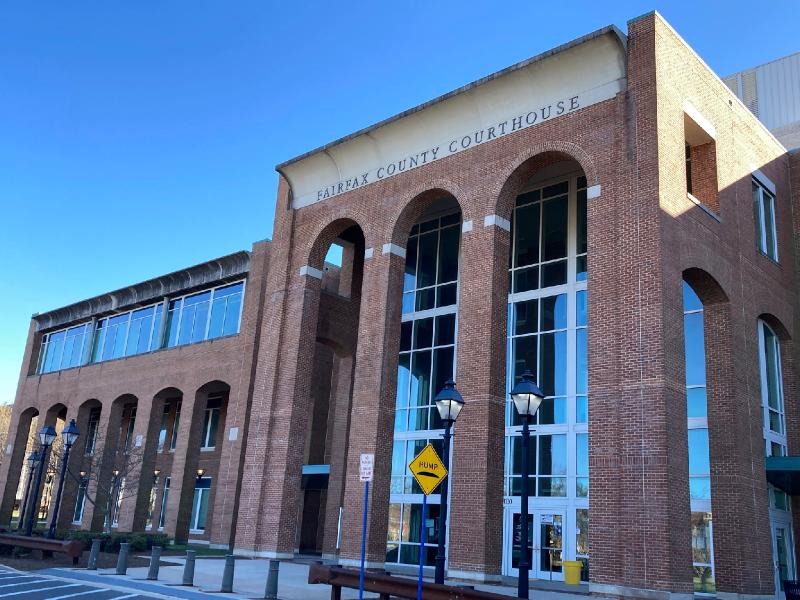Judge Cites 1849 Slavery Law in Ruling Embryos Can Be Considered Property



A Virginia judge relied in part on a 19th century law that defined enslaved people as property in a recent decision to allow a divorced woman to pursue using embryos that she shared with her former husband — a ruling that has drawn criticism.
The request by the woman, Honeyhline Heidemann, 45, represented an issue that had not been previously addressed by the court, Richard E. Gardiner, a Fairfax County Circuit Court judge, wrote in an opinion last month.
While previous cases asking for the division of frozen embryos have been considered within the legal context of splitting up marital property, the judge wrote in February, Ms. Heidemann was already divorced from her former husband, Jason Heidemann. So Judge Gardiner took a different approach, delving into earlier versions of Virginia’s current property law on “goods or chattels” to see whether embryos could be divided as property between people who are no longer spouses.
One version, an 1849 code, categorized “slaves” as property that could be divided and sold. The judge cited it to draw a parallel to the human embryo case, saying the code used “language almost identical” to current law.
One of Ms. Heidemann’s lawyers, Adam T. Kronfeld, said on Wednesday that the judge’s ruling meant that the case could now proceed to trial. “As of yet, all that has happened is the court is allowing the case to go forward,” he said.
But some criticized the judge’s use of an old law governing “slaves” in reaching his decision , which The Associated Press wrote about this month.
Lisa Ikemoto , a bioethics professor at the U.C. Davis School of Law, said courts had generally taken three approaches to contested embryos by enforcing previous agreements, balancing the procreative interests of the parties, or by trying to get them to agree.
“It is logically possible that he could treat it as a distribution of property, but he doesn’t have to go into the slave law. So that was a jump,” Ms. Ikemoto said. “In a sense, he is reviving the use of a law that treated humans as property, in the 21st century. It is reprehensible and offensive.”
Jason Thacker, a chairman of the Ethics and Religious Liberty Commission of the Southern Baptist Convention, said, in part, that the value of a human life is “fundamentally different from that of mere ‘property.’”
“As is so often the case with technology and medicine, these types of innovations have long outpaced our ethical evaluation and reflection,” he said in a statement.
Solomon Ashby, president of the Old Dominion Bar Association, a professional organization made up primarily of Black lawyers, called Judge Gardiner’s ruling troubling. “I would like to think that the bench and the bar would be seeking more modern precedent,” he told The A.P.
Ms. Heidemann’s legal team, Surovell, Isaacs & Levy, distanced itself from the language used in the ruling, saying the court “cited authorities that were not raised by either party.” But it said that Ms. Heidemann “is pleased the Court has ruled that the embryos can potentially be utilized to fulfill her dream of having children one day.”
Orrick, Herrington & Sutcliffe, the law firm representing Mr. Heidemann, declined to comment.
The Heidemann case goes to the heart of how courts are struggling to interpret laws that can address custody of stored embryos when a couple separates. Some judges have awarded frozen embryos to one partner against another’s wishes, such as in a case in Chicago, or ordered them destroyed , as with a case in California.
State laws can be lacking in addressing the nuances of parental relationships and the right to procreate, as the Heidemann case appears to suggest.
The Heidemanns started in vitro fertilization in 2015, and froze two embryos, the ruling said. After they separated in 2017, they made a written agreement, saying the embryos would not be removed without a court order or the consent of both parties, a stipulation that was included under a subhead called Division of Personal Property, the ruling said.
In 2018, they divorced. In 2019, Ms. Heidemann asked Mr. Heidemann for consent to use the embryos because chemotherapy for cancer had left her infertile, the opinion letter said. Mr. Heidemann declined.
In 2021, Ms. Heidemann sought from the court the right to decide what to do with the embryos, based on the property law that governs partitioning by sale, if necessary, of “goods or chattels.”
But Ms. Heidemann’s legal team filed a motion to reconsider, which led to the judge’s ruling in February overruling Mr. Heidemann’s objection. He also cited other laws, including one in 1819 that deals with “slaves” as property separate from land, as well as the couple’s previous written agreement about the embryos.
The judge has not ruled on other issues in the case, including one on Mr. Heidemann’s argument that if his former spouse used the embryos to become pregnant, it would violate his right to reproductive autonomy.







With apologies to Gershwin:
The more I read the papers, the less I comprehend
The world and all its capers and how it all will end.
Nothing seems to be lasting, but that isn’t our affair.
We’ve got something permanent,
An embryo we can share.
... or not.
Huh???? Who knew that could EVER be a problem.... ~sarc~